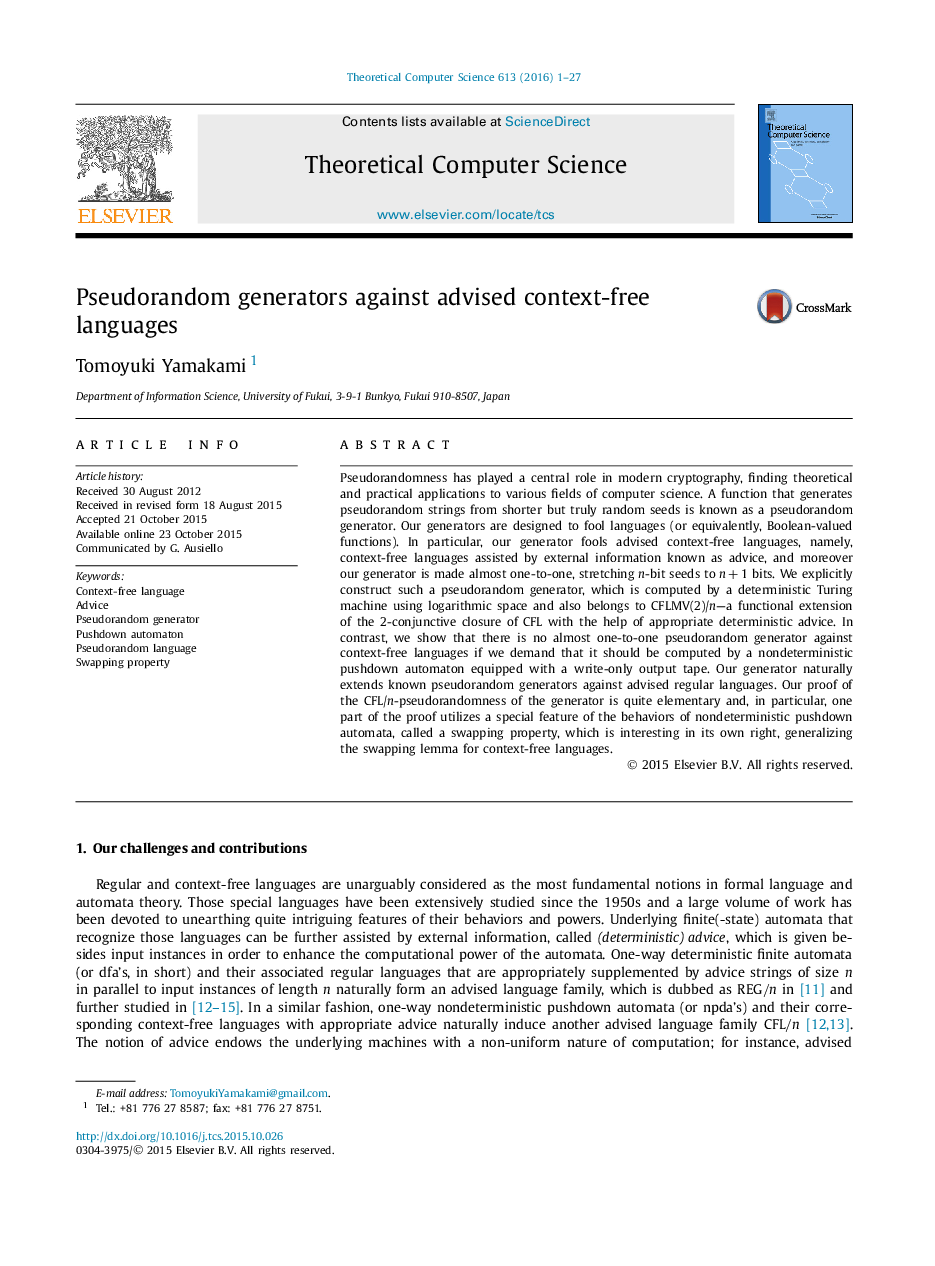| Article ID | Journal | Published Year | Pages | File Type |
|---|---|---|---|---|
| 435409 | Theoretical Computer Science | 2016 | 27 Pages |
•There exists an almost 1-1 pseudorandom generator against CFL/n in CFLMV(2)/n.•No almost 1-1 pseudorandom generator against CFL exists in CFLMV.•A swapping property lemma is proven for advised context-free languages.•The swapping lemma for context-free languages is re-proven.
Pseudorandomness has played a central role in modern cryptography, finding theoretical and practical applications to various fields of computer science. A function that generates pseudorandom strings from shorter but truly random seeds is known as a pseudorandom generator. Our generators are designed to fool languages (or equivalently, Boolean-valued functions). In particular, our generator fools advised context-free languages, namely, context-free languages assisted by external information known as advice, and moreover our generator is made almost one-to-one, stretching n -bit seeds to n+1n+1 bits. We explicitly construct such a pseudorandom generator, which is computed by a deterministic Turing machine using logarithmic space and also belongs to CFLMV(2)/n—a functional extension of the 2-conjunctive closure of CFL with the help of appropriate deterministic advice. In contrast, we show that there is no almost one-to-one pseudorandom generator against context-free languages if we demand that it should be computed by a nondeterministic pushdown automaton equipped with a write-only output tape. Our generator naturally extends known pseudorandom generators against advised regular languages. Our proof of the CFL/n-pseudorandomness of the generator is quite elementary and, in particular, one part of the proof utilizes a special feature of the behaviors of nondeterministic pushdown automata, called a swapping property, which is interesting in its own right, generalizing the swapping lemma for context-free languages.
